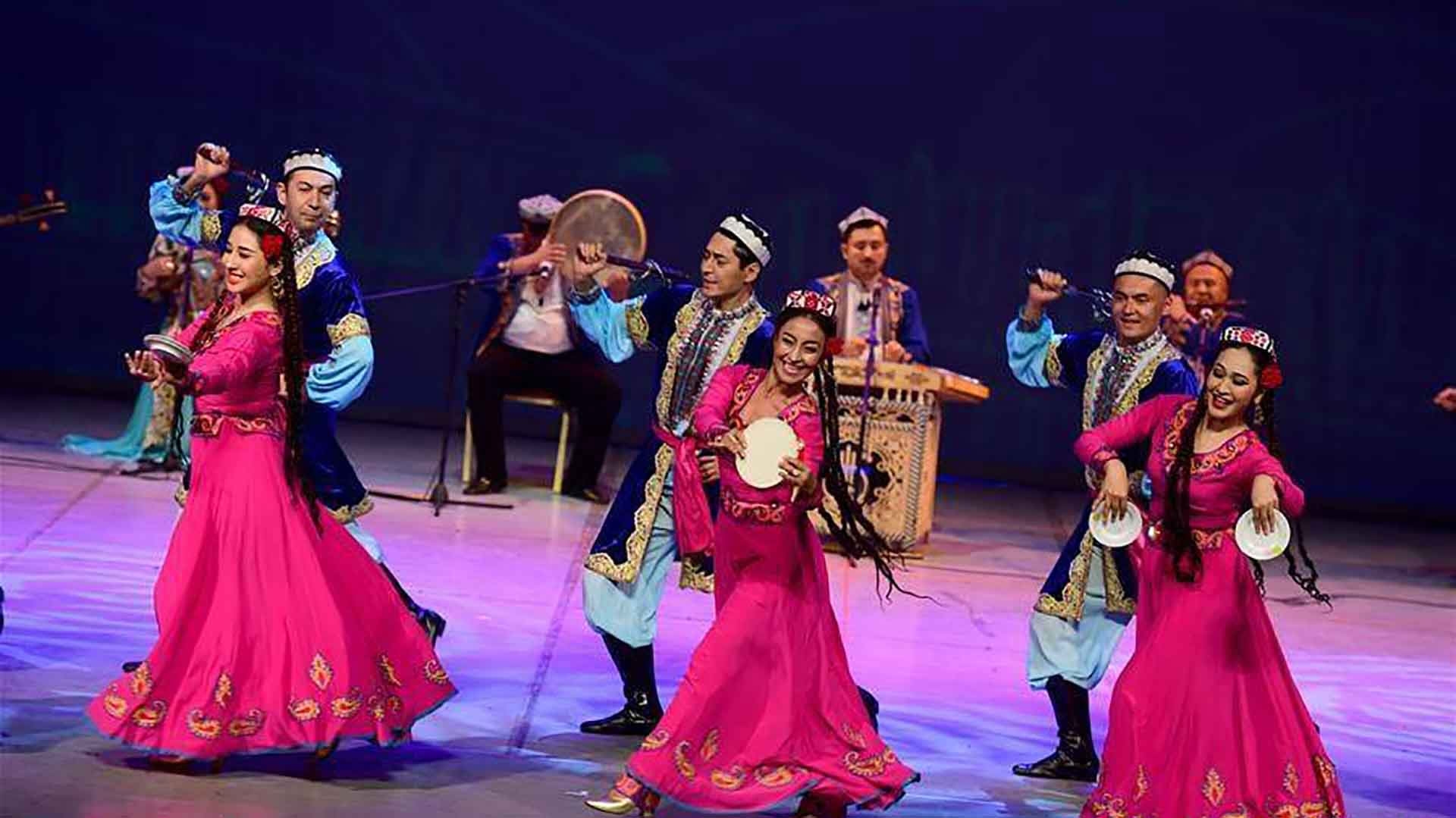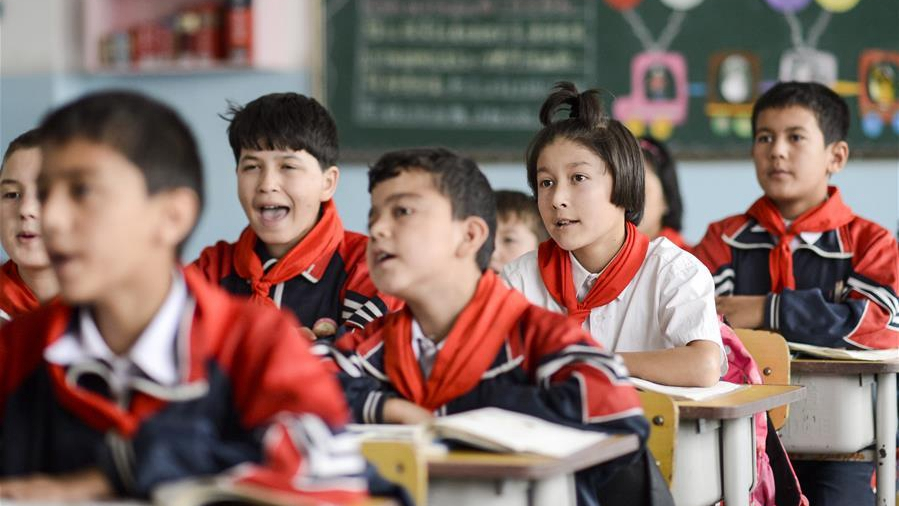
Editor's note: Sultan M Hali is a Pakistani writer and security analyst. The article reflects the author's opinions and not necessarily the views of CGTN.
China's Xinjiang Uygur Autonomous Region has featured prominently in Western media in recent times but for the wrong reasons. Following the age-old proverb of "give a dog a bad name and hang him," the West has been fabricating and spreading lies and disinformation about China's persecution of the ethnic Muslim minority group of Uygur people and castigating it.
The baseless accusations have been exposed not only by China but since 2018, by the over 1,200 neutral visitors from more than 100 countries, comprising UN officials, foreign diplomats posted in China, some countries' permanent representatives in Geneva, academics (including myself), journalists and religious opinion builders.
On its part, China has bent backwards for the world to see the truth. On February 22, the International Department of the Communist Party of China (CPC) Central Committee (IDCPC) and the CPC Xinjiang Uygur Autonomous Regional Committee co-hosted the "Stories of CPC" Thematic Briefing on Xinjiang in Urumqi.
The event had a participation of over 310 leaders and prominent personages representing more than 190 political parties and organizations from 80 plus countries, among which over 100 were from Islamic countries. The participants engaged in an in-depth discussion on the theme of "A Better Life for All" and reached broad consensus on ways to tackle the various challenges to humankind.
Apparently, it falls on deaf ears. The possible reason is that the rapid economic rise of China, its successful handling of the COVID-19 pandemic, its outreach to the world – first with medical aid and later with potent vaccines – has rattled its detractors.
China is the second largest economic power of the world, yet according to Yang Jiechi, a member of the Political Bureau of the CPC Central Committee and director of the Office of the Foreign Affairs Commission of the CPC Central Committee, its per capita GDP is only one-fifth of that of the U.S. But China has managed to end absolute poverty for its entire population. This is a remarkable achievement but instead of applauding the feat or considering emulating it, China's detractors are busy targeting its soft underbelly Xinjiang to drag it down.
Even a cursory glance of U.S. history, post-World War II, we notice a trigger happy world power, eager to jump into wars which it could have avoided, but which brought it little glory. Korea, Laos, Lebanon, Vietnam, Dominican Civil War, Grenada, Panama, Gulf War, Somalia, Bosnia, Haiti, Afghanistan, Iraq, Libya and Syria, to name a few.

Students attend class at the central primary school in Tokkuzak township, Shufu county, northwest China's Xinjiang Uygur Autonomous Region, September 26, 2017. /VCG
Students attend class at the central primary school in Tokkuzak township, Shufu county, northwest China's Xinjiang Uygur Autonomous Region, September 26, 2017. /VCG
To maintain its superpower status, the U.S. needs to sustain a powerful military force. To justify defence spending, it needs enemies. This view is endorsed by renowned writer and CNN's GPS host Fareed Zakaria in his latest opinion piece on The Washington Post titled "The Pentagon is using China as an excuse for huge new budgets" published Friday. One needs not quote extracts from his article since the title is self-explanatory.
The story of Xinjiang is a telling tale, to which I have been an eye witness since 1974 when I made my first visit to China as an air crew in the Pakistan Air Force. It was indeed a backward region but so was most of China at the time of its foundation in 1949. Facing numerous calamities and challenges but by dint of hard work and astute planning, the country overcame adversities, including isolation by the Occident and became an economic power.
In its rapid progress, the eastern regions achieved development and opulence but the western ones, mainly Xinjiang, initially lagged behind. The state of underdevelopment was exploited by China's detractors through sedition of Uygurs, who are the main residents of the region. Their sense of deprivation was used as coercive force for Uygurs to indulge in acts of terrorism, extremism and separatism. The Chinese government took stern action against the miscreants but simultaneously ensured development and prosperity through mega projects, which raised the quality of life for people there.
I have toured the length and breadth of Xinjiang and seen for myself that the allegations of intimidation, genocide, incarceration in concentration camps, slave labor, religious suppression, rape and ethnic cleansing through forced sterilization are totally false.
I have visited the so-called "indoctrination centers," which are being misrepresented by the West as gaols, where minor offenders are given courses in Chinese Constitution and Law besides being imparted vocational training to deradicalize them. As a Muslim, I have offered prayers in Xinjiang mosques and found no truth in rumours that Uygurs are oppressed or stopped from practicing religious rituals.
One sure method to nail a lie is to plug its source. Chinese firms, which have undergone losses due to false accusations by German-origin, pseudo-academic Adrian Zenz, who testified in front of the U.S. State Department, stirring it to levy sanctions against them, have sued Adrian for his false stories. China needs to face the undue assaults boldly and augustly.
(If you want to contribute and have specific expertise, please contact us at opinions@cgtn.com.)

